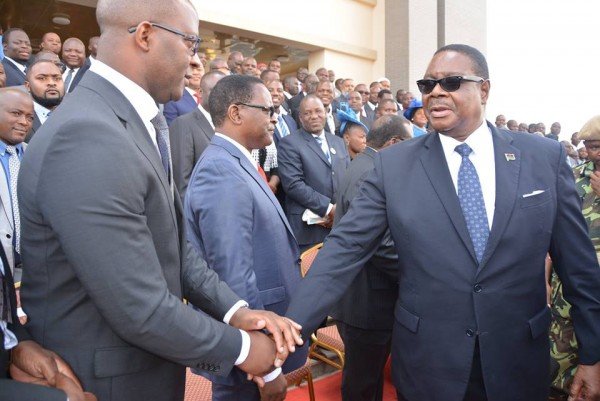
As the 2025 tripartite general elections in Malawi draw near, it is interesting to note that many voters are grappling with uncertainty over the possible electoral alliances. The truth of the matter is that it is highly improbable that a single party can solely attain 50% plus one majority of the total cast votes.
In accordance with the 2020 Constitutional Court verdict, the Malawi Electoral Commission (MEC) is obligated to announce the victory of any presidential candidate who unequivocally amasses at least half plus one of the total cast votes. This is why it is not surprising to observe that many politicians and political parties in this Southern African country strategically positioning themselves for a potential [formidable] electoral alliance. It is therefore the purpose of this article to unravel the possible permutations of viable political alliances.
For starters, as stated in previous articles two years ago, a fierce electoral battle is expected between two major political parties, namely the ruling Malawi Congress Party (MCP) and the erstwhile mighty Democratic Progressive Party (DPP). These are the two main political parties according to the 2019 election results, which were statistically similar to the 2020 fresh presidential elections.
It is also of paramount importance to acknowledge that the winner of the 2025 presidential election will largely depend on the strategic formation of electoral alliances by either MCP or DPP. Suffice it to say that the claims by smaller parties, such as the People’s Development Party (PDP), are merely rhetorical.
In fact, the truth of the matter is that all minor parties, such as UTM, Aford, UDF and many others, are strategically marketing themselves to form viable electoral alliances with either MCP or DPP.
However, one pertinent question that needs to be answered is: which political parties exude a magnetic affinity towards forming a formidable electoral alliance with either MCP or DPP? Objectively tackling this conundrum requires a comprehensive analysis and understanding of the current political landscape in Malawi.
It is on record that nine political parties chose to enter into a political marriage of convenience, dubbed the Tonse Alliance, during the 2020 fresh presidential elections. However, four years down the line, after taking over government, Malawians have noticed that the Tonse Alliance has started to crumble. Needless to say, some parties, such as Aford and UTM, have publicly denounced their membership in this failed alliance. It, therefore, does not take a rocket scientist to appreciate that these parties will not wish to enter into an electoral alliance with MCP simply because MCP deliberately chose to disrespect the Tonse Alliance pact.
Furthermore, recently many Malawians were taken by surprise when MCP was unceremoniously barred from attending the 2024 United Democratic Front (UDF) convention. This suggests that UDF is not comfortable partnering with MCP again.
Additionally, the way the MCP-led government handled former Vice President Saulos Chilima’s plane crash leaves much to be desired. Four months down the line, it is heartbreaking to note that no tangible report has yet been produced surrounding Chilima’s demise. This has sparked much curiosity, speculation, and distrust towards the incumbent MCP-led government. As a result, many political parties are likely to be reluctant to partner with MCP in the forthcoming general elections.
In conclusion, it is highly likely that Malawi will once again witness the formation of a grand electoral alliance of many opposition political parties. Just as MCP enjoyed the Tonse Alliance of nine opposition political parties in 2020, DPP will possibly form a grand alliance with many opposition parties such as Aford, UTM, UDF, and others prior to the 2025 general elections. If this happens, DPP will therefore most likely emerge victorious in the coming elections.














